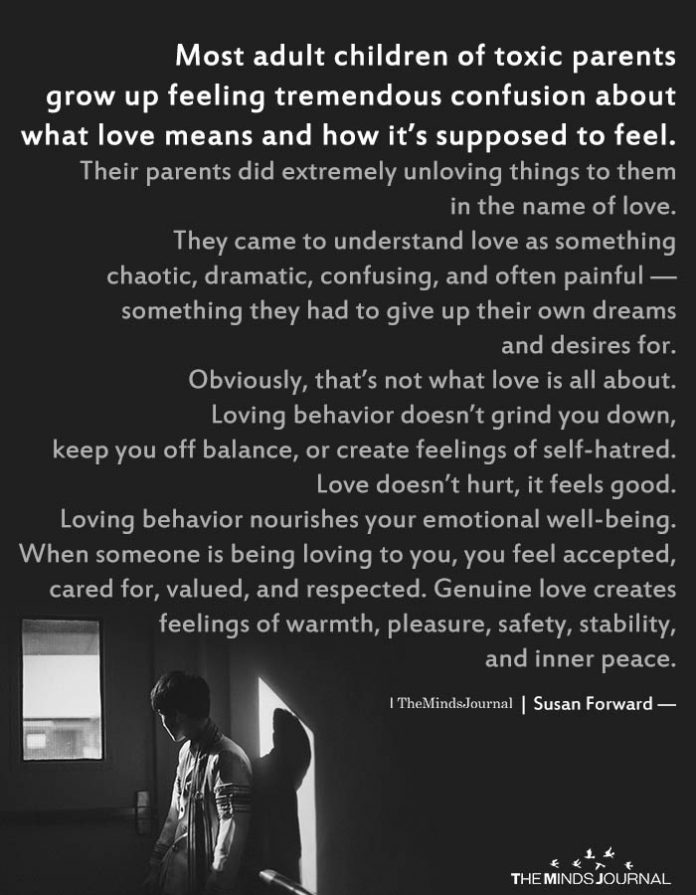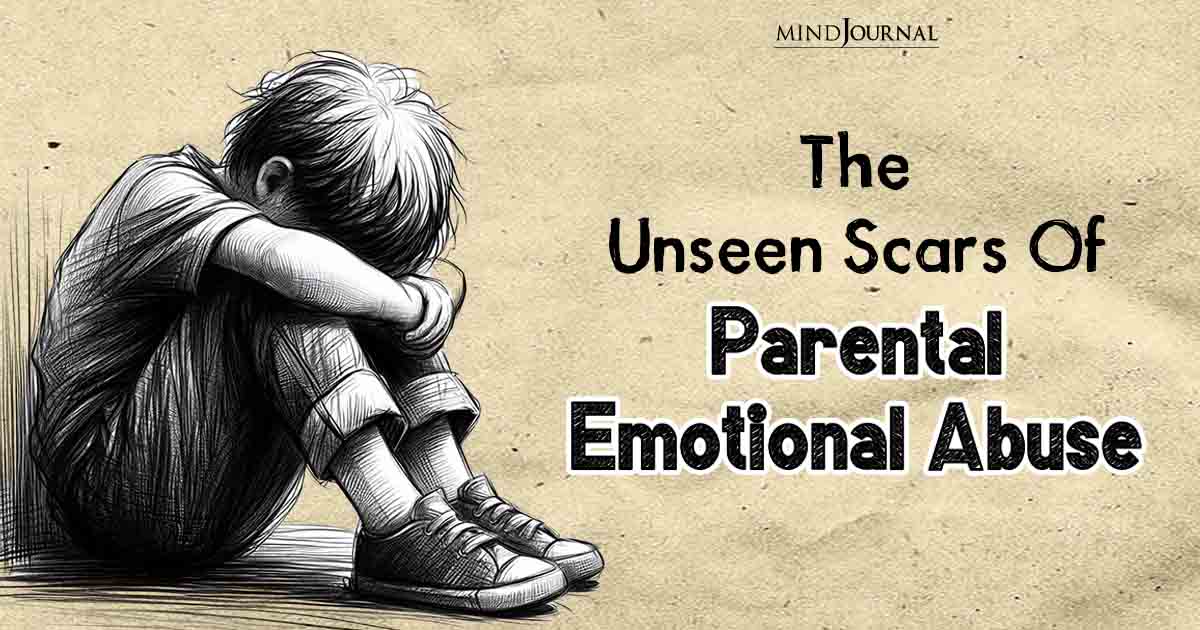Parental emotional abuse is something that plagues and traumatizes many people, well into their adulthood. Even when they leave their parents’ homes and build their own separate lives, the scars left behind can be hard to move on from.
For many people, even entering adulthood does not release them from the scars and pain of growing up in an emotionally abusive environment. Emotional abuse can range from having a parent who simply ignores you, to one that criticizes everything you do.
When the people who gave you life, or who adopted you to give you a better life, consistently point out how you are no good and lack whatever important attribute they deem to be necessary, the pain seeps in and can live there for a lifetime.
Emotional abuse is such a difficult problem to treat. There are safe houses for those experiencing physical or sexual abuse—as there should be—but if you are “only” living with emotional abuse, there are few resources to help you.
More importantly for children, it’s hard to share with anyone what you are living with—the counselor at school might contact your parents, who laugh it off and say,
“What a softie” you are; you can’t afford to pay for your own counselor, and your parents say, “Why do you need to talk about how easily hurt you are, anyway?”; and many times a religious leader will tell you that you “just need to understand how hard the job of parenting really is.”
Related: How Parents Cause Mental Health Problems In Their Children
It can feel like there is nowhere to turn, and more importantly, many times you find yourself feeling like you are the crazy one.
What Is Parental Emotional Abuse?
A simple definition: the debasement of a person’s feelings that causes the individual to perceive himself or herself as inept, not cared for, and worthless.
While the definition is short and to the point, the resulting pain and feelings of worthlessness are not. After all, if the people who theoretically should care the most about you in life—your parents—consistently find ways to debase you and point out how inept you are, it’s hard to believe that it isn’t true.
Many people may spend years trying to work through these feelings of worthlessness and find ways to secure true and lasting self-confidence. This can be done through therapy, talking with loving friends or other family members, or getting in touch with a higher power or spiritual affiliation.

The scars of emotional abuse are often unseen until they rear themselves with outbursts of anger, or feelings of sadness or depression. Anxiety and worry are often outcomes of living through an emotionally abusive childhood, too. Taking risks and feeling perpetually vulnerable are common outcomes.
There is no easy fix when you’ve grown up with emotionally abusive parents or guardians.
One of the biggest problems is that the words you’ve learned repeat over and over inside your head, and those voices continually tell you that your mother or father was right about you: “You will never succeed. No one will ever love you. You won’t get that raise or that job. You are ugly, fat, worthless.” The list goes on.
The self-talk that results from these constant refrains will follow you as you grow unless you catch yourself repeating something that you were told—and recognize that it isn’t true. Becoming aware of your negative self-talk and deliberately changing your refrain is a powerful way to release yourself from the prison created by your abusive upbringing.
It isn’t easy. Those refrains, like that song you can’t get out of your head, play over and over again; sometimes, you aren’t even aware they are there. You just feel “blah” or “sad” or “down.”
You might even call the abusive parent to talk about how sad you are feeling, and even in adulthood, they will remind you how you can’t expect much out of life.
So, choose to become aware of what your mind is telling you that stems from something you were told as a child growing up. You can catch these negative refrains and replace them with a different language that builds your confidence and gives you a chance to see another viewpoint.
If you recognize the negative refrains, you can choose to cancel them out—imagine putting a big red X through the voice that tells you you aren’t good enough. Replace this with something positive: “I’m human, and I’m just as able as anyone else to succeed,” for example.
When you hear those negative refrains playing in your head, have a more neutral refrain ready to go: “My parents were compromised people who might have thought telling me I’m no good was a way to inspire me—the problem is, they were wrong. I have a lot to offer and I’m finding ways to do so.”
Make a list of sayings that you can believe to be true. Don’t be overly positive if your mind will reject this—saying “I’m a winner!” when you don’t feel like one can sometimes be discouraging and derail your progress.
Related: The Connection Between Verbal Abuse And Anxiety That No One Talks About
Instead, start small; “I’m learning to love myself and forgive myself,” for example, or, “I catch negative thoughts and replace them with things that give me confidence.”
Negative self-talk gives life to the emotional abuse and keeps it alive. While being a child may have made you feel trapped and longing to be a grown-up and free, once you are a grown-up, you can allow your own mind to help you find freedom.
Those voices can’t have ongoing life unless you give it to them—change the voices to something that frees you to be the confident person you were always meant to be.
Written By Beverly D. Flaxington Originally Appeared In Psychology Today
Frequently Asked Questions (FAQs)
What do I do if no one will help me deal with my parents emotional abuse?
Emotional abuse can have negative effects on a person’s physical and mental health. If you facel parental emotional abuse then share your story with someone you trust, write down all the details and if needed call for help.
Why am I constantly being psychologically abused by people everyday as if it were a fun thing to do?
Emotional abuse involves attempts to control, frighten or dominate a person’s thoughts and actions. If you’re being constantly abused then it means that those toxic individuals want to control you and your life.
How does a narcissist feel when you do not react to their emotional abuse?
If you ignore a narcissists emotional abuse then it will enrage them. They will feel embarrassed and will lash out against you to protect their ego.
What are my options when it comes to physical and emotional abuse?
When it comes to physical and emotional abuse, you need to recognize the things happening to you is not healthy. Seek support from friends and family and lastly get professional guidance of deal with it.














Leave a Reply